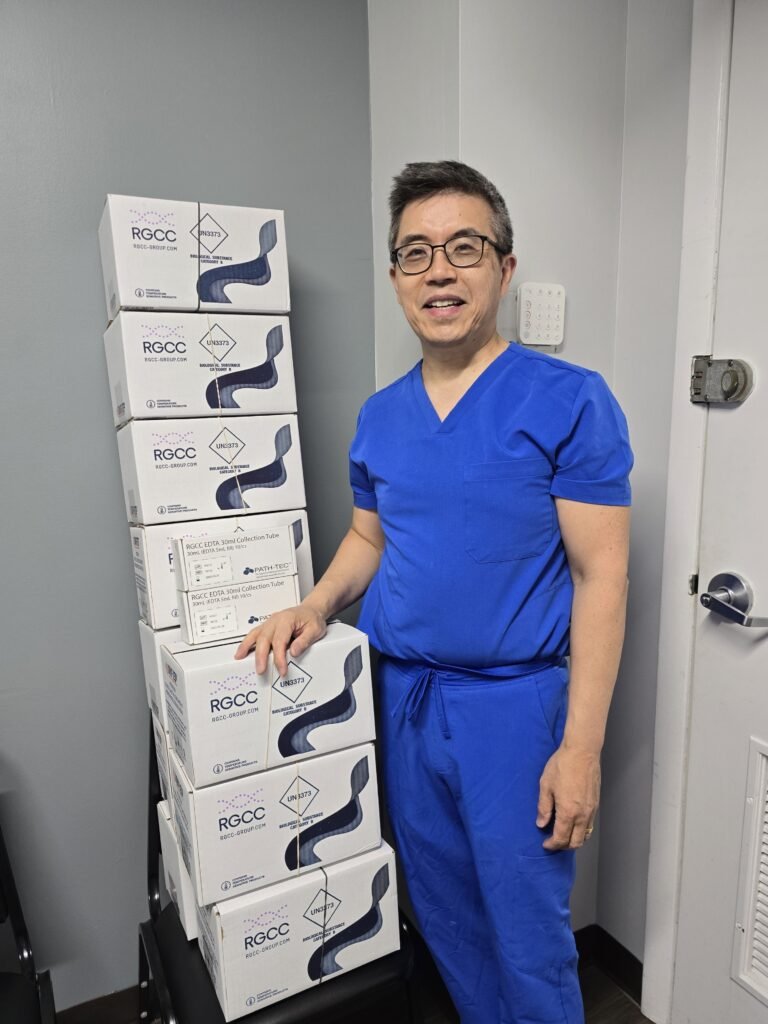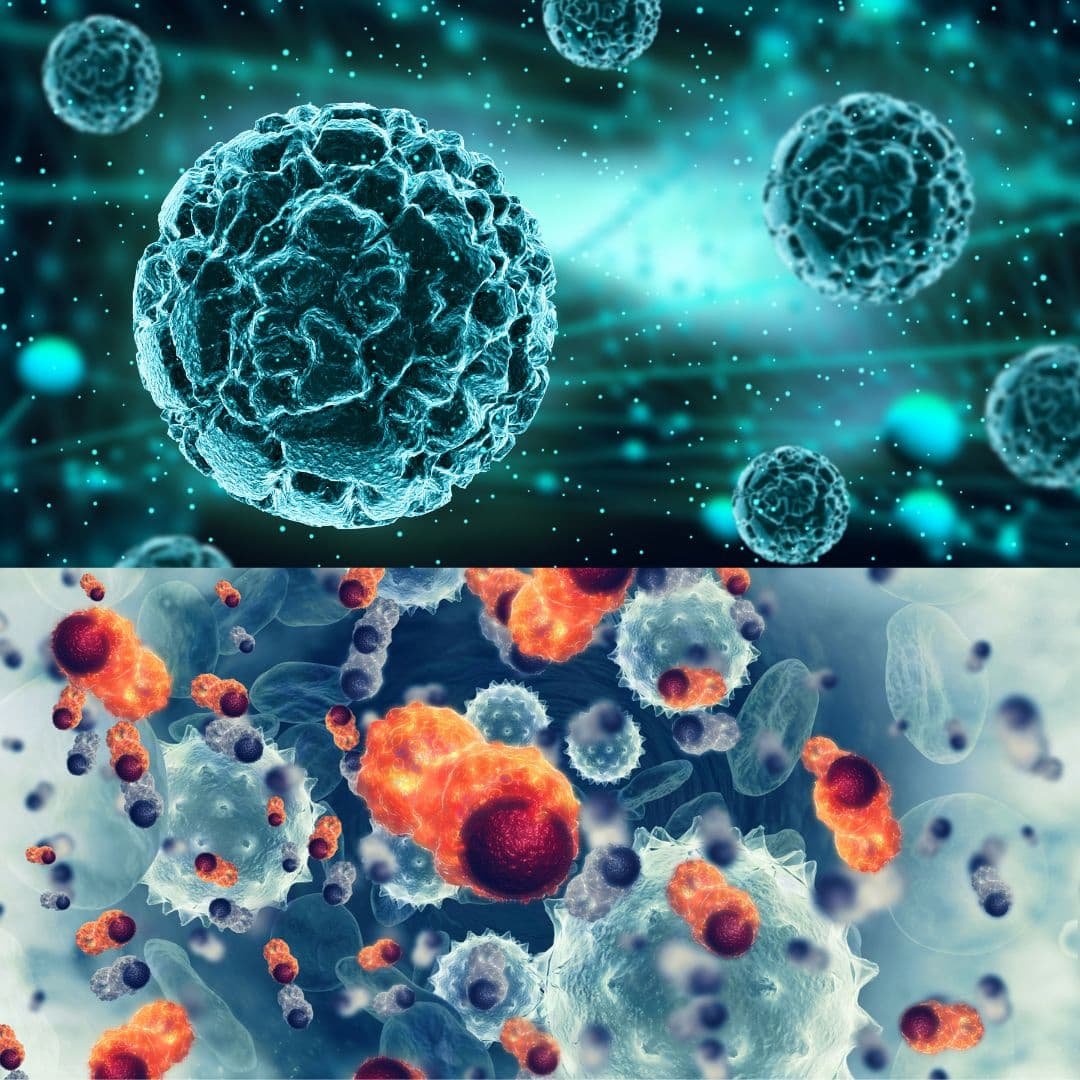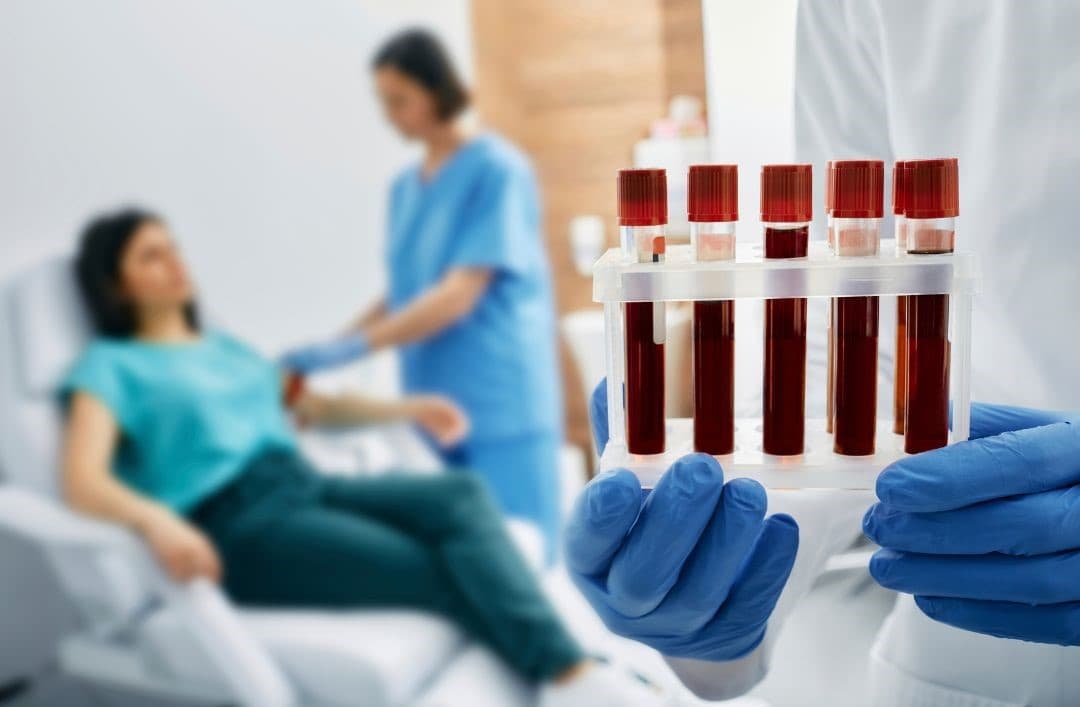Supportive Oligonucleotide Therapies for Infections and Cancer
RGCC Tests and Therapies is an innovative approach used to treat infections and cancer. What sets SOT apart is its personalized nature, as the treatments are created from the patient’s own blood, ensuring tailored therapy for each individual. By selectively silencing critical genes in infectious agents or cancer cells, SOT effectively eliminates them.
The pioneering work on enhancing SOT has been carried out by the Research Genetic Cancer Center (RGCC), a prominent medical genetics company in Greece. With nearly a decade of research, SOT, also known as Antisense Oligodeoxynucleotide Therapy (AOT), builds upon years of scientific investigation conducted by esteemed European and American companies and universities.
At the core of SOT is the blocking of a critical gene’s function. Nucleotides, the building blocks of DNA and RNA, come together in “oligonucleotides,” comprising sequences rarely exceeding 20 bases. The term “antisense” refers to SOT’s design, which allows it to bind to complementary RNA bases in the targeted cells.

RGCC Tests and Therapies identifying the replication genes responsible for cell replication, developing an anti-copy (antisense strand) to these genes. This complementary copy halts the replication process.
Employing miRNA (micro RNAs), RGCC Tests and Therapies influences specific gene expressions without altering the genetic structure. The anti-copy is then encapsulated with synthetic messenger RNA (mRNA), enabling it to penetrate the target cells effectively. Through replication, approximately 500 million to 1 billion copies of SOT molecules are produced. Afterward, the SOT is shipped to Dr. Bloem’s office for administration, and it continues to work for around six months following intravenous infusion.
We recommend regular follow-up testing to monitor the resolution of infections and to assess the decrease in cancer stem cells (CSCs) in cancer patients.
It’s crucial to emphasize that each infection requires a unique SOT, and patients with multiple infections may need more than one treatment. Usually, only one SOT treatment is necessary per infection, though in some cases, a second treatment may be required approximately six months later.
SOT is available for Lyme disease and co-infections (Borrelia, Babesia, and Bartonella):


Viruses:
SOT functions by terminating the gene replication sequences of infections, thereby halting their lifecycle and eliminating them from the body. In cases where a patient has multiple active infections, each infection will require separate SOT treatments.
It’s important to note that SOT is not an immune treatment, as it does not modify the immune system. Thanks to its high compatibility with the patient, side effects are typically minimal. Potential side effects may include headaches, body aches, general malaise, sweating, diarrhea, cough, and low-grade fever (usually ≤101°F), as well as mild to moderate flu like symptoms. These symptoms typically resolve within 24-48 hours, with some cases taking up to a week at most.

For cancer treatment with SOT, the therapy induces rapid apoptosis in circulating tumor cells (CTCs), circulating cancer stem cells (CSCs), primary tumor cells, and metastatic tumors. Moreover, it has the ability to penetrate the blood-brain barrier, interfering with the replication ability of these cells. Before administering SOT, we recommend a PET/CT, CT, or MRI scan to assess the extent of cancer, especially for metastasis. This information allows for personalized dosing and timing of the SOT, reducing the risk of adverse reactions. It’s important to be cautious in cases of cancer with metastasis, as it could lead to Tumor Lysis Syndrome (TLS), a potentially life-threatening condition.
We have been offering SOT to our patients since 2020. Because we have seen good results, it has become an important part of Dr. Bloem’s integrative treatment protocols for patients with chronic infections and for patients with a cancer diagnosis.
patient, blood, cell, gene, therapy, blood test, disease, genetics, mutation, immune system, chemotherapy, circulating tumor cell, cancer treatment, biomarker, biopsy, prostate cancer, personalized medicine, oncology, metastasis, physician, lung cancer, laboratory, research, circulating tumor dna, genetic testing, molecular biology, targeted therapy, screening, liquid biopsy, gene expression, alternative medicine, surgery, dendritic cell, cancer cell, drug, therapies, efficacy, flow cytometry, circulating free dna, diagnosis, immunophenotyping, assay, cancer research, relapse, primary tumor, phenotype, health care, sarcoma, immunotherapy, concentration, antigen, behavior, food and drug administration, faq, cytometry, clinical trial, medical genetics, organ, lymphatic system, vaccine, biology, apoptosis, radiation therapy, tissue, microbiome, hormone, pharmaceutical industry, oligonucleotide, pathology, understanding, knowledge, risk, acid, forum health, healthcare, circulating tumor, supportive oligonucleotide therapy, masterclass, accreditation certificate, liquid biopsy tests, sample report, oncotrace, prognosis, quality of life, small molecule, molecule, methodology, stem cell, mental health, medication, cancer screening, compassion, vitamin, sleep, clinician, antibody, lymph, toxin, nutrition, policy, rna, infection, pathogen, sot therapy for cancer, messenger rna, borrelia, herpes simplex virus, bacteria, small interfering rna, antisense therapy, borrelia burgdorferi, cytomegalovirus, nucleic acid, babesia, hepatitis c, rna interference, dose, analysis of variance, bartonella, hepatitis b virus, statistical significance, injection, microrna, tumor lysis syndrome, gene silencing, statistic, nucleotide, hepatitis c virus, varicella zoster virus, headache, colorectal cancer, t cell, duchenne muscular dystrophy, polymerase chain reaction, fever, regulation of gene expression, species, human immunodeficiency virus, malignancy, lysis, immunodeficiency, evaluation, patisiran, bonferroni correction, fatigue, genetic code, medical history, transcription, microorganism, central nervous system, muscular dystrophy, pain, nervous system, oncogene, familial amyloid polyneuropathy, crossref, hypothesis, borrelia mayonii, leukemia, syndrome, null hypothesis, cell growth, percentage, cough, platelet, ixodes scapularis, investigational new drug, remission, in vivo, oxygen, paul knoepfler, nursing, biotechnology, protein production, solution, strain, sense strand, sot cancer treatment, sot treatment for cancer
sot therapy, rgcc test near me, sot rgcc, dr bloem, rgcc test for cancer, rgcc test reviews, rgcc lab, rgcc blood test, sot therapy for lyme, sot lyme, what is sot therapy, sot for lyme disease, sot infusion, rgcc cancer, rgcc, naturopath kensington, sot for lyme, rgcc testing, rgcc test, rgcc sot, sot lyme treatment, sot therapy for cancer, supportive oligonucleotide therapy, holistic doctors maryland, holistic doctor near me, md holistic medicine, rgcc.ae, sot cancer treatment, sot treatment, sot testing, holistic doctor maryland, sot treatment for lyme, sot therapy for cancer success rate, rgcc cancer test, rgcc greece test, sot treatment for cancer, sot therapy side effects, rgcc test locations, rgcc logo, holistic doctor in maryland, dr fred, holistic doctors in maryland, dr fres, bloem, dr maggot, reviews of sot therapy for lyme disease, sot lyme disease, naturopathic doctor near me, what does rgcc stand for, rgcc testing near me, fred bloem, greece test cancer, rgcc usa, pdo threads olney md, sot therapy lyme, rgcc greece, rgcc labs, sot therapy for herpes, rgcc gene, holistic medicine near me, does sot therapy work, sot therapy europe, sot treatment reviews, dr boem, rgcc login, supportive oligonucleotide technique sot for ebv, sot therapy for ebv, what is sot treatment, supportive oligonucleotide technique, huisarts de bloem, rgcc portal, sot therapy greece, supportive oligonucleotide technique sot for herpes, holistic healing near me, dr.maggot, bloom medicine, dr holistico, rgcc test usa locations, supportive oligonucleotide therapy near me, rgcc.ae photos, oncotrace test, sot therapy near me, dr fed, endolaser near me, supportive oligonucleotide therapy for cancer, de bloem wellness, bloom functional medicine, sot treatments, sot virus, fred bloem md llc kensington reviews, is the rgcc test fda approved, rgcc sot therapy